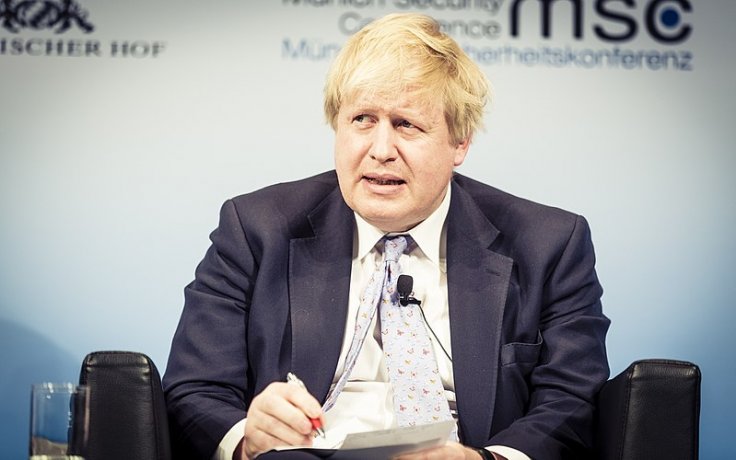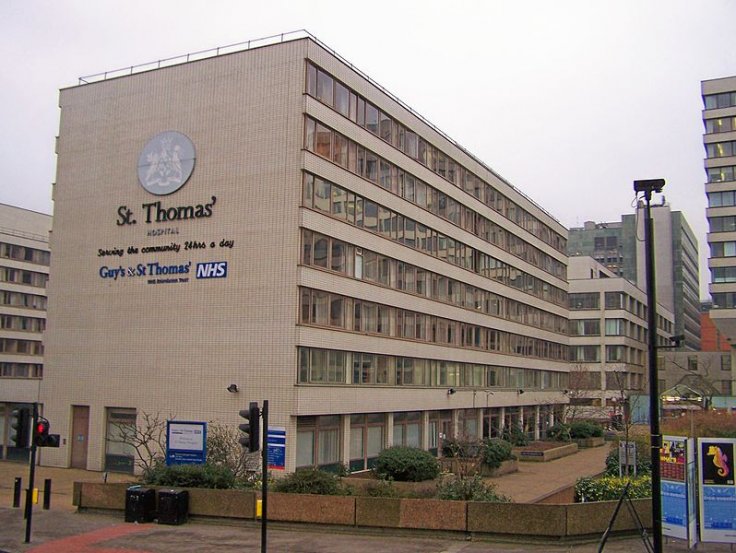UK Prime Minister Boris Johnson was rushed to hospital in London and admitted in the intensive care unit after his Coronavirus symptoms worsened on Tuesday, April 7. While the deteriorated condition forced the people to think worse about Johnson's health, it was revealed that he is currently stable.
During the White House briefing on Tuesday, the US President Donald Trump said that there are two drug makers who are currently working with US government on experimental drugs to "contact London" for offering their support for UK PM Johnson. The Downing Street thanked Trump on Wednesday and revealed that the UK is in constant contact with the US officials.
London hospital using experimental drugs
It should be noted that UK PM is currently admitted in London's St Thomas' Hospital, which is involved with major trials of experimental drugs on COVID-19 patients. The hospital has been using medications like antimalarial drug hydroxychloroquine, which have been approved by drug regulators for clinical trial purposes only. Here it should be noted that Trump has been supporting this particular drug to use to treat Coronavirus patients.
But a recent report by the New York Times revealed that "If hydroxychloroquine becomes an accepted treatment, several pharmaceutical companies stand to profit, including shareholders and senior executives with connections to the president. Mr Trump himself has a small personal financial interest in Sanofi, the French drugmaker that makes Plaquenil, the brand-name version of hydroxychloroquine."
However, there are some other medicines such as HIV drug combination lopinavir and ritonavir, as well as experimental Ebola drug remdesivir- which are currently used as experimental drugs to treat COVID-19 patients in the UK. Doctors in the hospital will also assess how thousands of patients, including some critically ill people, respond to these medicines.

Which medication Boris Johnson will be receiving?
Downing Street said on Wednesday that PM Johnson is 'breathing without assistance' in intensive care and does not have pneumonia. A spokesman said he was "stable overnight and remains in good spirits," having received "standard oxygen treatment." He also added that the Johnson "Has not required mechanical ventilation or non-invasive respiratory support.'
Neither the Downing Street nor the hospital, none of them have revealed the name of the particular drug that will be used to treat aggressive symptoms of the UK PM Johnson. But since the doctors have been using medications such as Hydroxychloroquine, Lopinavir, Interferon beta-1b, Dexamethasone and Remdesivir, it can be assumed that St Thomas' Hospital will also use one of these medications to treat the Johnson.

Here are some details about these experimental drugs:
Hydroxychloroquine
This drug is used to treat malaria, lupus and rheumatoid arthritis. It is a less powerful medication and by some experts' accounts, less toxic, version of chloroquine phosphate. While NHS is using this drug for experimental purpose, French health officials are now planning on a larger trial of the drug. The side effects include skin rashes, nausea, diarrhoea and headaches.
Lopinavir/ritonavir
This is an anti-HIV medicine given to people affected by the virus to prevent it from developing into AIDS. It should be mentioned that Illinois-based drug manufacturer AbbVie donated free supplies of this medicine to authorities in China, US and Europe for tests. Even though the Chinese media reported that Lopinavir was successfully used to cure COVID-19 patients, the reports have not been scientifically proven.
The drug is not approved by the authorities in the UK to use it as a prescribed drug for Coronavirus but it will be used in the recovery trial. However, the side effects of this drug include diarrhoea, headaches, upset stomachs, drowsiness, dizziness, a bad taste in the mouth and trouble sleeping.
Interferon beta-1b/SNG001
The drug which is still in development and goes by the name of SNG001, actually a formulation of IFN-beta developed by Synairgen to prevent severe lower respiratory tract illness caused by cold and flu infections. The drug called Extavia works by slowing down the damage to the nervous system and by reducing the number of relapses.
Southampton researchers are conducting a Phase II SNG001 trial on COVID-19 patients to see whether the medication works. But doctors are currently clueless about the side effects, which will be reported with the findings of the clinical trial. However, other forms of interferon beta can cause headaches, vaginal bleeding and diminish libido.
Dexamethasone
The brand version of the dug is Ozurdex and Baycadron which is used to treat allergies and asthma, as well as some types of cancer. It should be noted that no studies have yet to prove dexamethasone can treat Novel Coronavirus, but it has been tested on MERS and SARS patients. The medication is known to cause an increase in appetite and heartburn, as well as muscle weakness and insomnia.
Remdesivir
Developed around 10 years ago to treat Ebola patients. Even though lab tests have shown promise against Coronaviruses, human trials are still in their early days. The Adaptive COVID-19 Treatment Trial (ACTT-EU/UK) unit will evaluate the safety and effectiveness of remdesivir in patients with moderate to severe COVID-19. Scientists said this is proven to be safe in humans.
Ceftriaxone
This medication can treat many kinds of bacterial infections, including severe or life-threatening forms such as meningitis. But it may cause mild diarrhoea, warmth or a hard lump where the injection was given, vaginal itching or discharge, rash, or poor liver function.
However, apart from all these drugs, there are a few names which are currently in use as experimental drugs to treat COVID-19- Moxifloxacin, Piperacillin-tazobactam, Macrolide, Oseltamivir, Amoxicillin-clavulanate, Ceftaroline.








